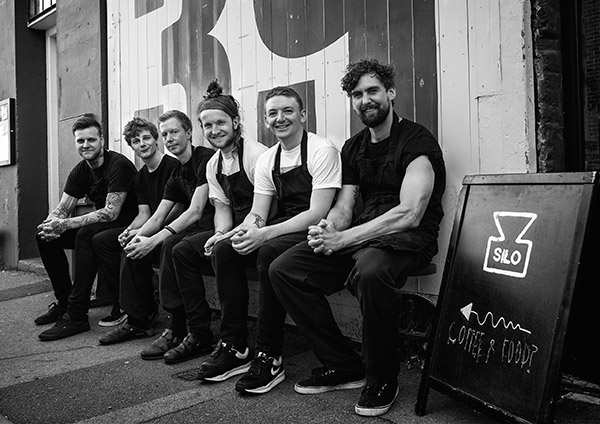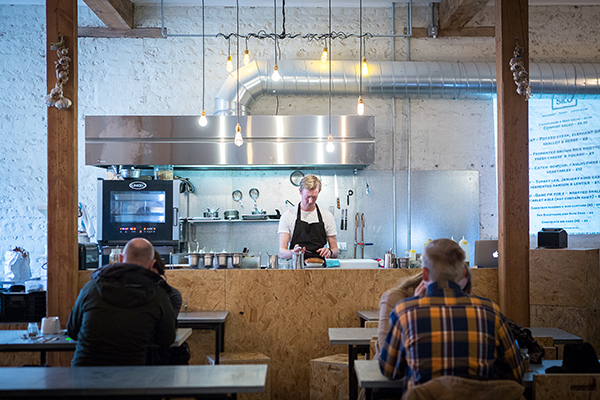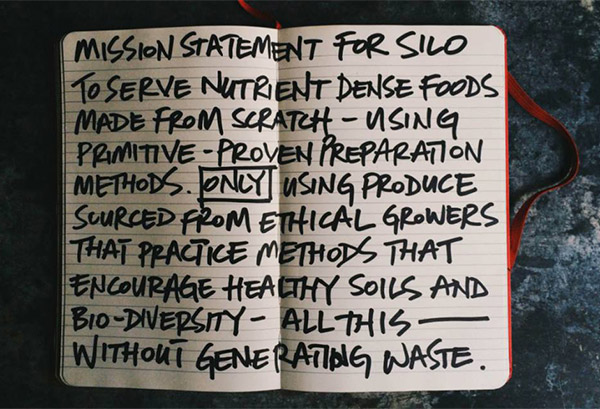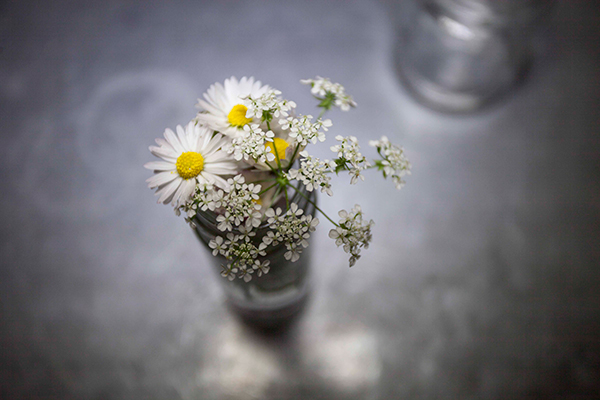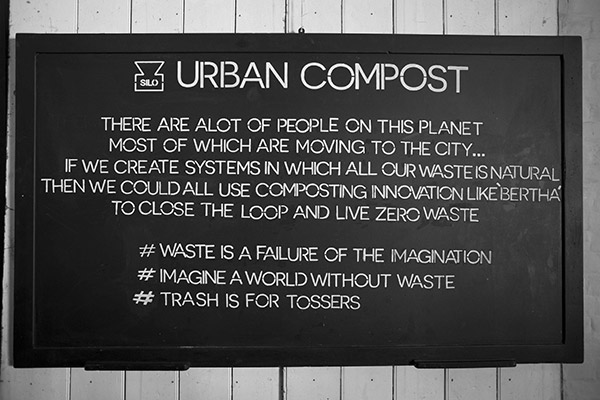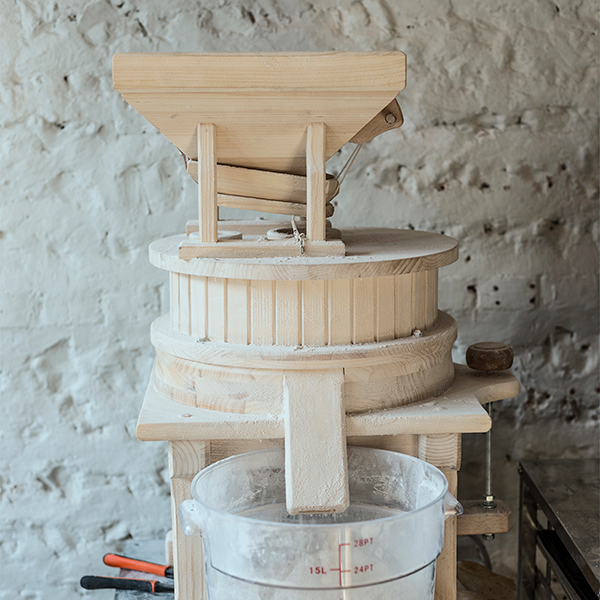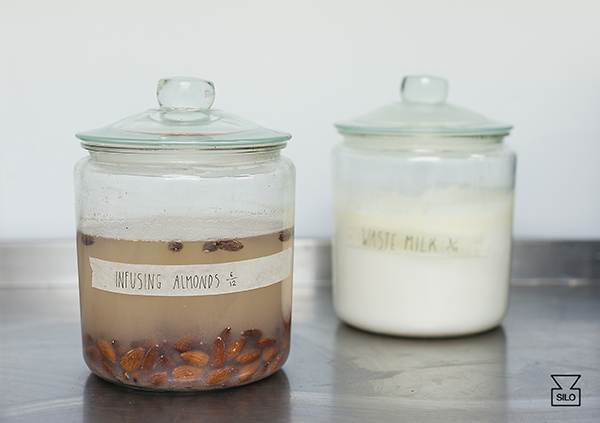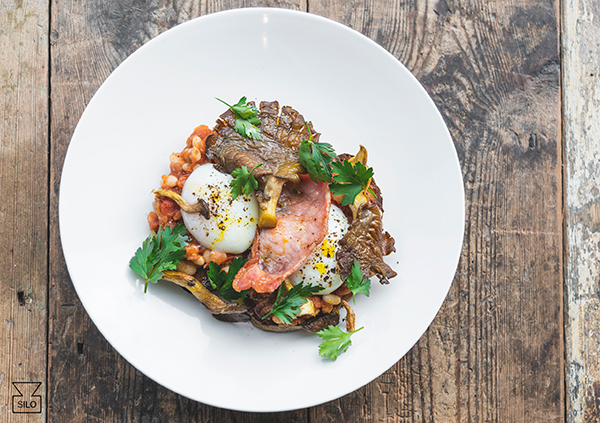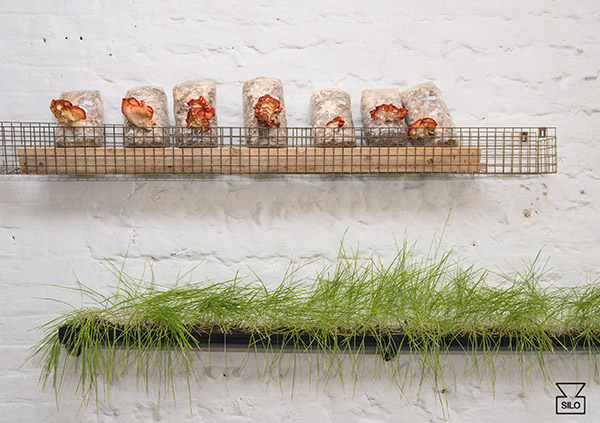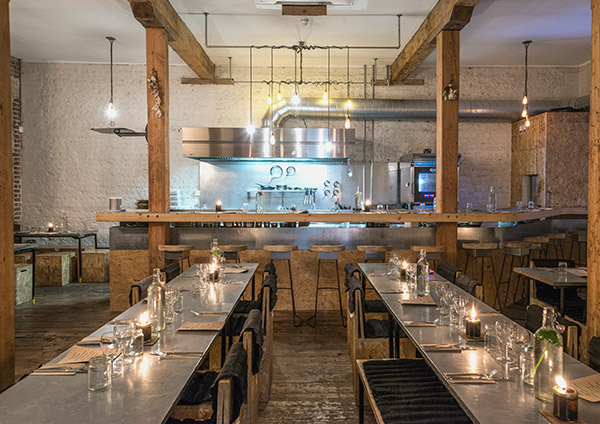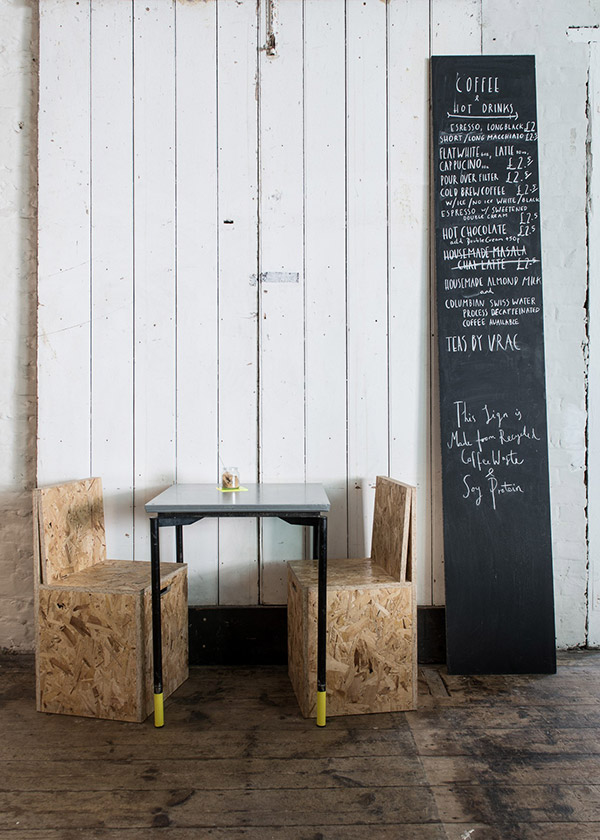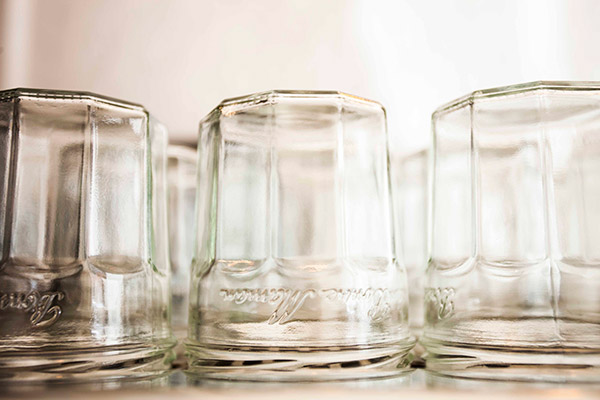If there’s anywhere that prompts you to contemplate exactly where your food is coming from, it’s Silo – an award-winning zero waste restaurant, bakery and coffee house in Brighton. Silo opened in 2014 and pioneered zero waste dining in the UK. Its unique philosophy towards food revolves around using healthy ingredients in their whole form, making foods from scratch, cutting out food miles, reusing wherever possible and eliminating waste.
At the helm of the enterprise is Douglas McMaster. Prior to opening Silo, he was cooking around the world in various fine dining restaurants, including Fergus Henderson’s St. John. He also piloted the zero waste model in Australia, alongside sustainable artist and architect Joost Bakker, who Douglas describes as his mentor, ‘a true genius’ and the visionary behind zero waste in hospitality.
Silo prides itself on creating nutritious food using a pre-industrial food system that generates zero waste. The ethos is in part a reaction to a certain ‘superchef’ perfectionism in the food industry, which Douglas believes to be stifling and unsustainable. He also maintains that by working solely with ingredients that can be processed in house, in their whole form, seasonally and as locally as possible, with no waste at the end of it, can actually allow for more creativity, freedom and experimentation.
Generally speaking, the zero waste philosophy applies to the life cycles of materials and resources. It strives for systems that are akin to nature, whereby everything can ultimately be reused and therefore no trash is produced.
The zero waste movement is growing, to the point of being adopted as an entire lifestyle, highlighted by influencers such as Lauren Singer from Trash is for Tossers and Bea Johnson who wrote Zero Waste Home: The Ultimate Guide to Simplifying Your Life in 2013.
Bea’s zero waste lifestyle involves doing things like making her own beauty products at home and buying her food in bulk with reusable jars and containers, as a way to avoid plastic. She only buys new things when absolutely necessary and will purchase second hand options wherever possible. Just like the benefits of minimalism, she says that this kind of conscious consumption can simplify your life, save you money and ultimately give you time to focus on what’s important.
Similarly, in the case of Silo’s zero waste model, all food is delivered packaging free in reusable crates, food grade jerry cans, pails, urns or containers. Everything is used up and anything discarded is composted, becoming a resource for a new life cycle, rather than just reaching a dead end.
One of the most wasteful aspects of the food industry is the fact that some menus will provide such vast amounts choice, increasing the need for more ingredients and consequently, the risk of more waste. Silo offer a meticulously planned limited menu, which allows for everything to be used up, across a range of dishes.
Silo churn their own butter, roll their own oats, make their own almond milk, cultivate their own mushrooms (using discarded coffee grounds) and even mill their own flour.
The flour mill played a key role in the pilot zero waste restaurant in Australia, as flour was one of the ingredients they couldn’t get hold of without packaging. They found that the flour they made themselves was far more superior than the stuff bought off the shelf, both nutritionally and in terms of flavour. This inspired the idea of working with pre-industrial methods and whole foods. The mill itself also inspired the shape of the Silo logo.
Speaking to Country and Town House Magazine Douglas says:
I think zero waste is a so popular because it’s so simple. In this very complicated wasteful world, something so pure is naturally attractive. The food industry in the last 50 years has become incredibly wasteful mainly due to industrialised food systems creating so much convenience and choice.
Furthermore, the culture that this food system has allowed to breed is one with unnatural expectations and an unhealthy appetite for perfection. That’s not to mention the packaging waste, which is, of course, a phenomenal strain on the environment, our economy and resources.
Any leftovers at the restaurant are composted by a huge aerobic digester, lovingly named Bertha. In 24 hours it can turn up to 60 kilos depending on density, into compost. Because their menu is conceived in a way that avoids waste, they only fill up a small portion of the machine, so they offer their composting service to surrounding restaurants and neighbours. Compost is then delivered to their growers directly or to other local restaurants in order to cut out the middlemen.
The zero waste ethos spreads throughout the restaurant, from the way the food and drinks are served to the interior design. Douglas describes the aesthetic they were aiming for as ‘minimalist, unfussy, raw, utilitarian and highlighting the system.’
The tables are made from recycled industrial floor tiles with steel work benches crafted from filing cabinet frames. Chairs are also appropriately hand-crafted from wooden offcuts. To make them more comfortable, they had special seat cushions made from recycled ripped denim jeans stuffed with torn ladies tights for extra padding.
It may not come as a surprise that the drinks are served in jam jars. Not just for effect however, the practice is entirely in line with the zero waste concept. Even the bathrooms eliminate the need for soap by using a highly scientific electrolysed water system which kills bacteria through a mix of alkaline and acidic water.
 Plates were made by Louise Thilly a design graduate of Brighton University who was commissioned by Silo to make them out of plastic bags. The bags are heated and pushed into a plate mould which gives them a lip so that they can easily be picked up off the table. The result is an incredible marble effect. In the restaurant the plates are used for bread and cakes.
Plates were made by Louise Thilly a design graduate of Brighton University who was commissioned by Silo to make them out of plastic bags. The bags are heated and pushed into a plate mould which gives them a lip so that they can easily be picked up off the table. The result is an incredible marble effect. In the restaurant the plates are used for bread and cakes.
Thought has literally gone into every detail at Silo and every detail has a story. Even the beer comes from the botanical Old Tree Brewery based at FIELD in Brighton, where drinks are made from foraged and intercepted plants, herbs, vegetables and fruit.
A visit to Silo is definitely recommended for foodies looking for something unique, forward-thinking and unpredictable. Next on their agenda are six new cocktails designed by Ryan Chetiyawardana, a world leader in inventive drink making. On their current menu, they are serving a dessert of sea buckthorn and Douglas fir. ‘Both ingredients are wild, abundant, unused and unknown,’ says Douglas.


